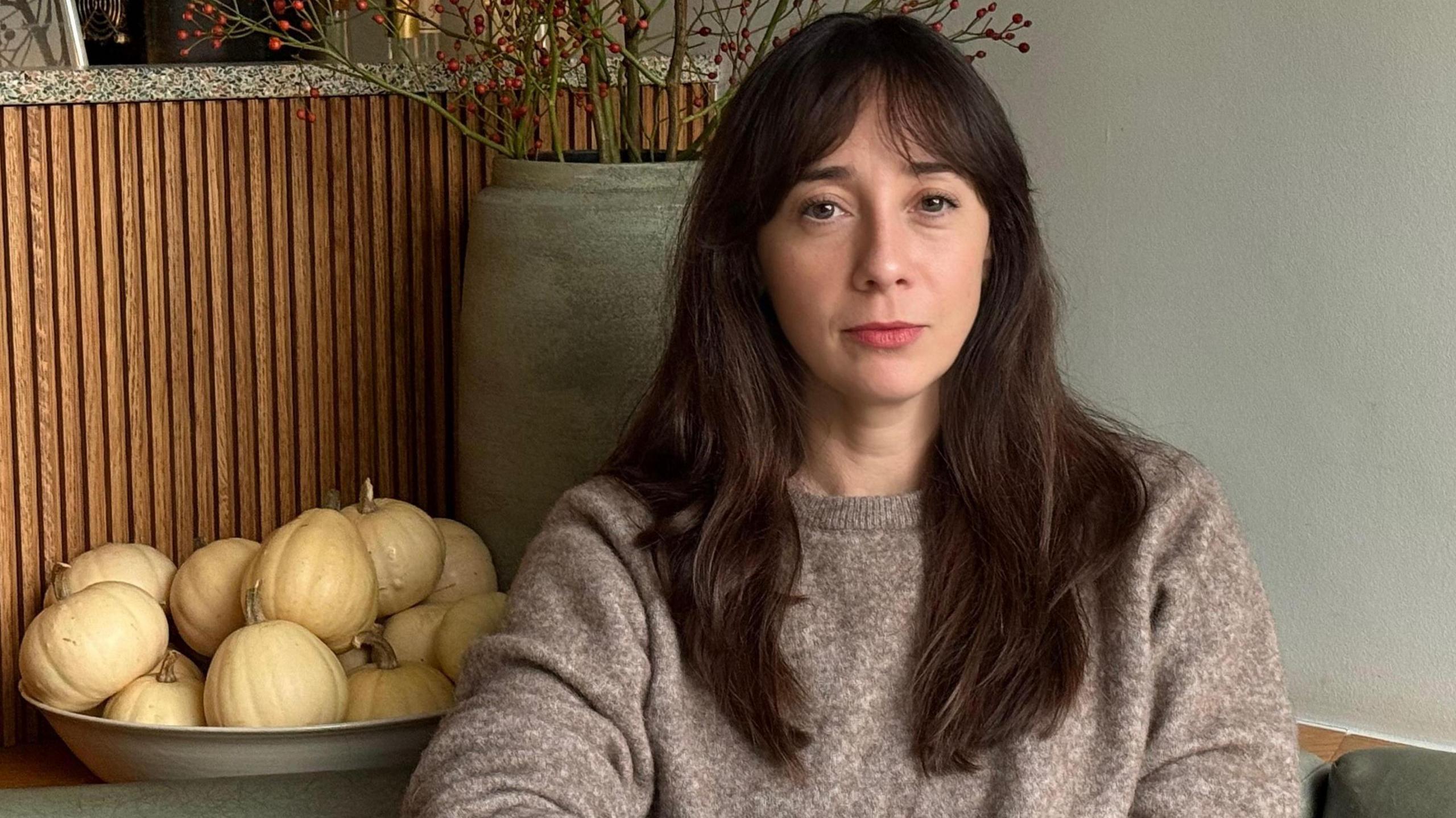Business leaders call for 'stability not surprises'
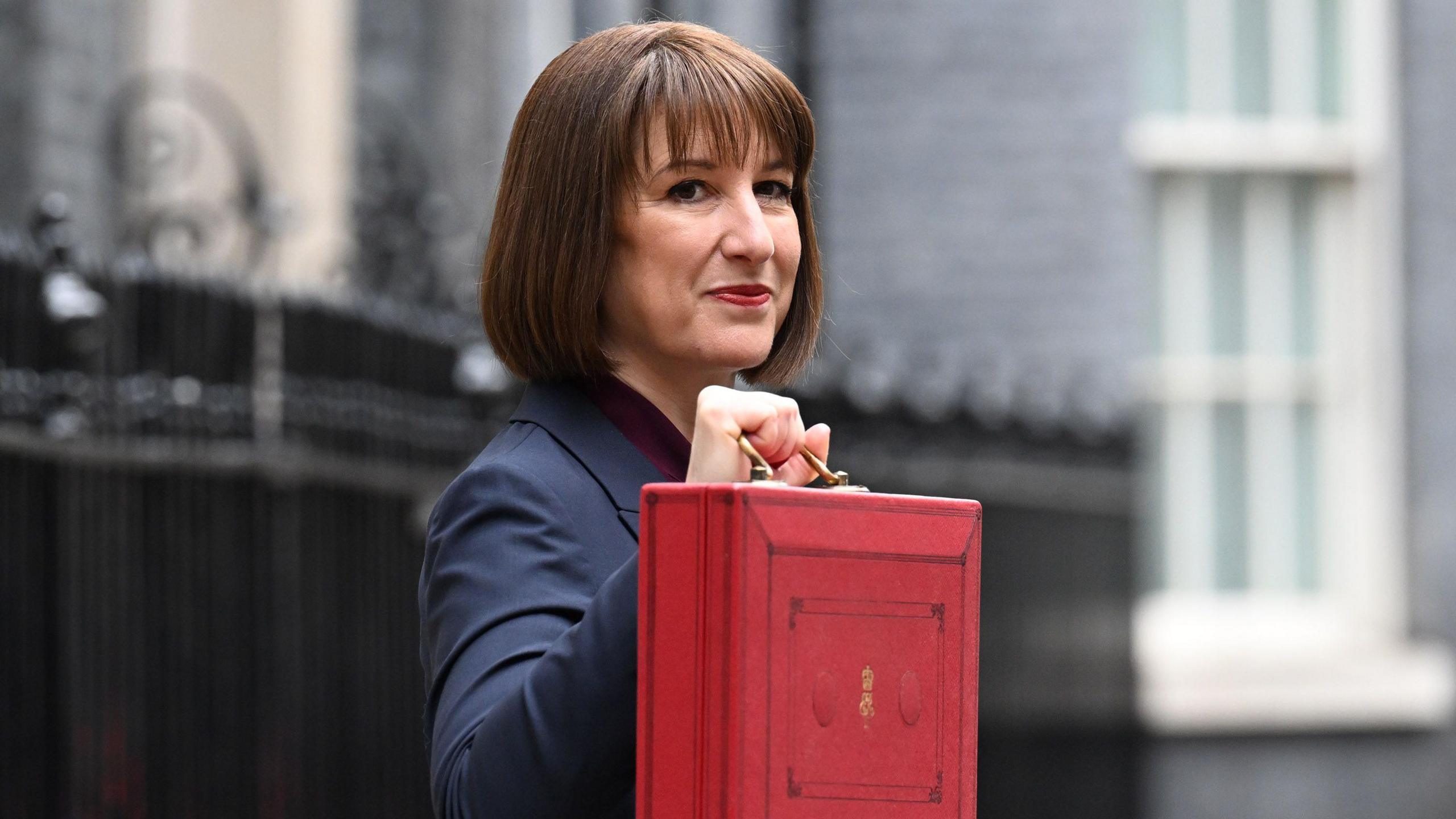
Rachel Reeves is due to deliver her second Budget on 26 November
- Published
With a week to go until Chancellor Rachel Reeves delivers the Budget, BBC Midlands has been speaking to four women – two leading employers, an apprentice and a college student – to ask how a new fiscal plan could support growth in the region's economy, offer young people hope in skills development, and deliver a much-needed boost to the labour market.
The construction boss
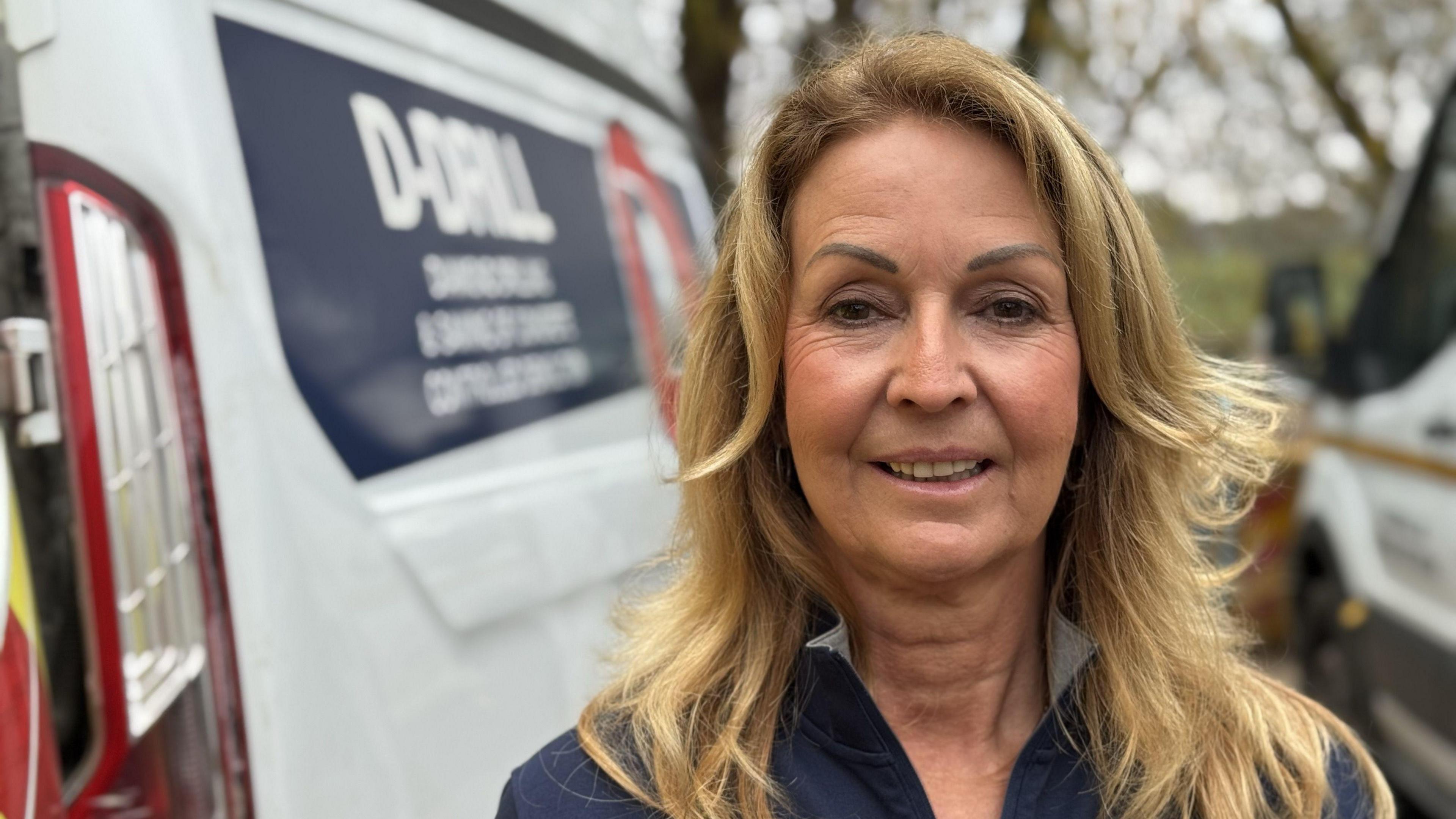
Julie White leads a UK-wide specialist diamond drilling and sawing business
Julie White, Managing Director, D-Drill and Sawing, Coventry
Julie began as a construction apprentice and now leads a UK-wide specialist diamond drilling and sawing business.
"In construction, we really need 100,000 people a year for us to keep on top of the infrastructure that the government is talking about delivering.
"What we need is the visibility in the pipeline. If we could see what kind of work we were going to get in six months to a year, then we would go out there and employ the right people to become concrete cutters and operators.
"There's a lot of red tape and paperwork about apprentices, so give the help to us SMEs because we can employ but it is hard work.
"Finally, we need stability and no, more surprises, please. No more taxes on business. Last time, the Chancellor put in a National Insurance increase in which people said that's not taxation, but it is, it's a tax on employing."
The training boss
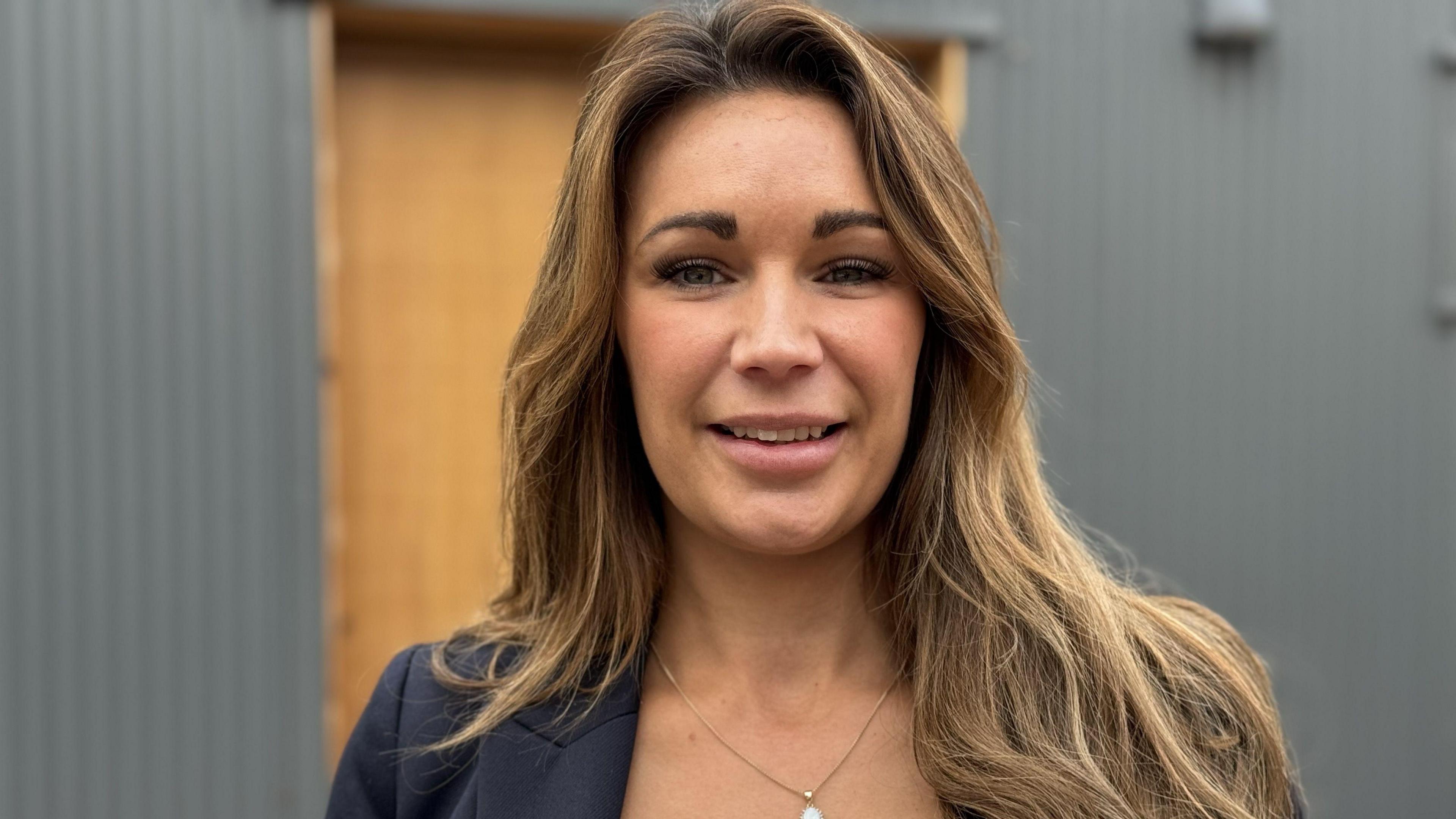
Gemma Parsons runs a training provider specialising in apprenticeships in traditional trades
Gemma Parsons, CEO, GLP Training, Worcester
Gemma heads up a Worcester-based training provider specialising in apprenticeships in traditional trades, including carpentry and plumbing. There are 1,300 people on their books, with an average age of 36.
"We've got advanced manufacturing, logistics, engineering, construction. We do a lot of work with local employers really looking at what the vacancies are, what the demand is and really trying to put training in.
"I think all of the noise (about the budget) has been really positive so far.
"We are seeing flexibility in the apprenticeship budget. We've got foundational apprenticeships being introduced, there are new rules around English and Maths which has been quite a big barrier from the upskilling perspective.
"The biggest challenges that we have in apprenticeships is the opportunities that are available…which are not meeting the actual demand.
"We did a national cohort for a large engineering employer. It was for 40 opportunities. We had 1,400 applications so that gives you a real idea of how few opportunities are out there."
"It looks like a lot more funding is going to be put into the hands of local authorities and, and I think that is exactly what we need."
The apprentice
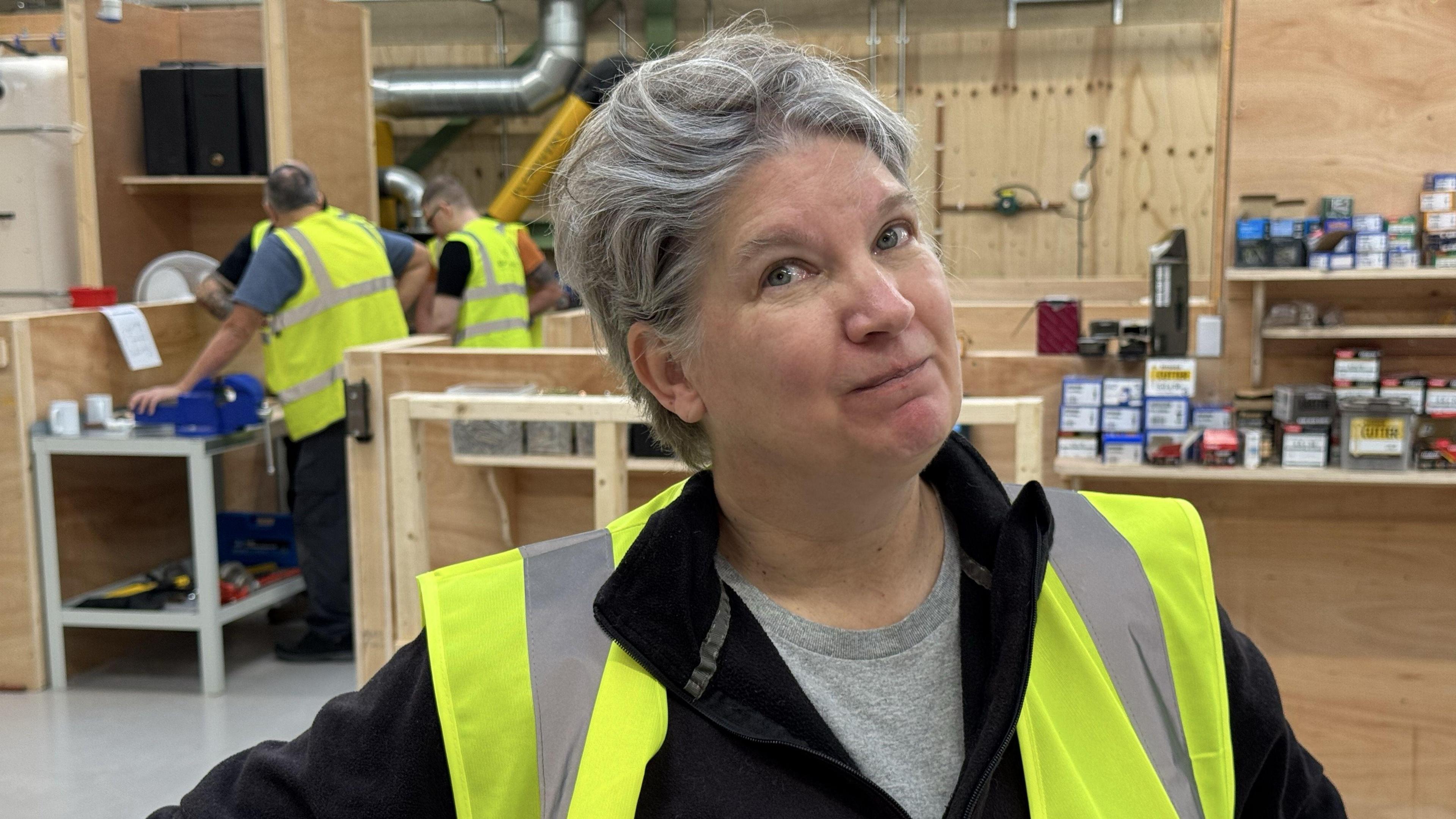
Marian Crenshaw-Austin wants to develop the skills to build a garden studio and renovate her own property
Marian Crenshaw-Austin, Level Two plumbing apprentice, Worcester
A historian and conservator, Marian wants to develop the skills to build a garden studio and renovate her own property.
"I think as you get to be a certain age, especially as a woman, and you're over-educated as I am, in some ways it can be the more difficult to find a job, and I think there's a lack of traditional skills training.
"So, if you are under 30, then you're going to get the opportunity to retrain. But if you're over 30, there are less opportunities for you.
"There is a definite emphasis on younger people not finding employment."
The student
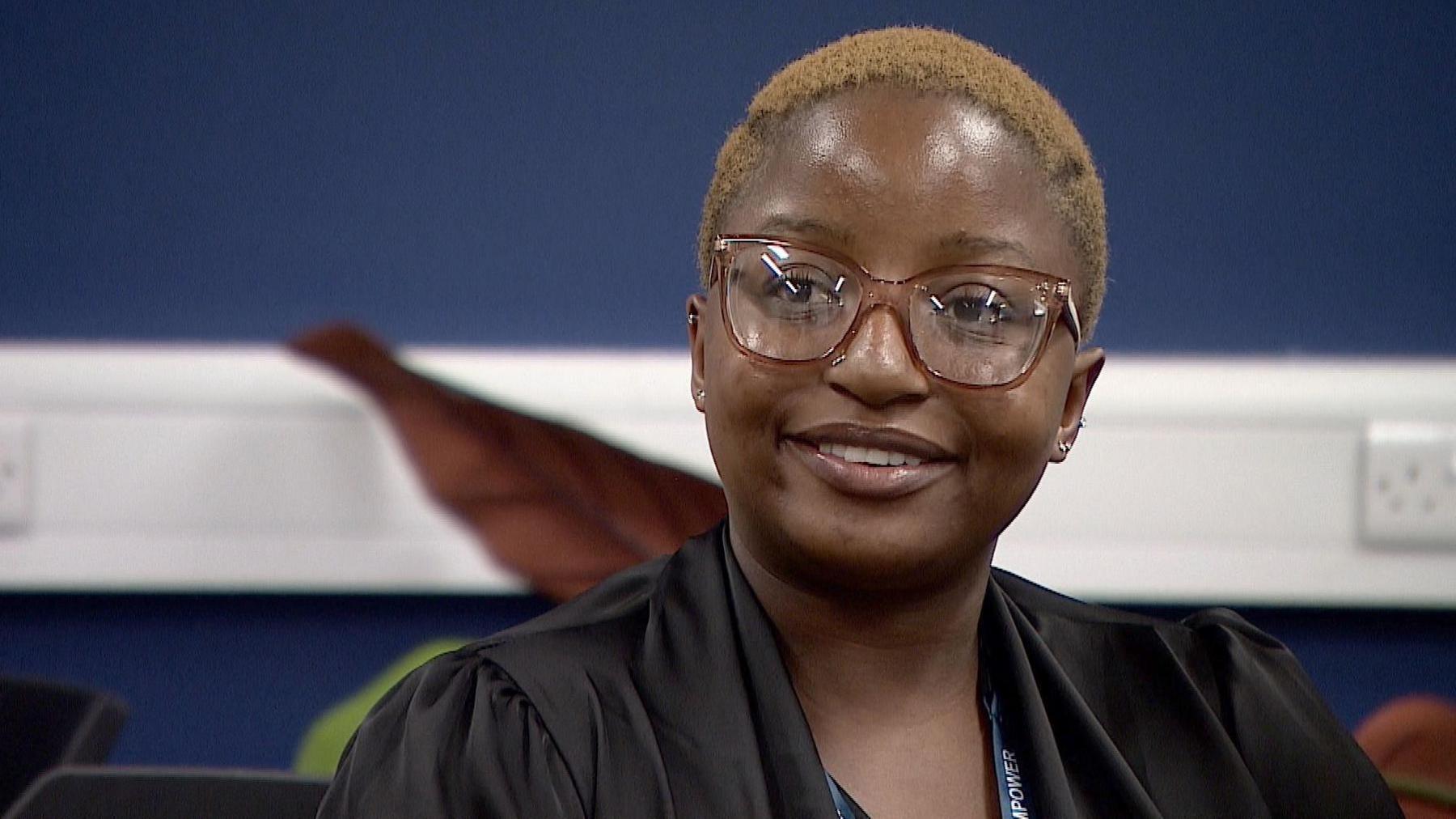
Student Natalie is studying aviation and hopes to become a pilot
Natalie, Sandwell College
Natalie is studying aviation - her ambition is to become a British Airways pilot.
"Looking for a job, it's really horrible. They don't reply to you and those who give you an interview don't like to give us opportunities because 'we lack experience'.
"It's kind of like a back and forth, nobody's willing to take the initiative to teach us something because we are willing to learn…it's really frustrating because it's not like we're not putting in the effort.
"I would say to the government – work with the colleges and that way we can be ready. Don't judge us because we're 18 or we're 16, we are young, but then we are responsible as well.
"They're talking about fairness in terms of employment, but really they're not talking about my job sector, being a pilot... we need qualifications, we need a pilot licence and that is not covered in student loans, which is a big problem because it's really expensive.
"We have the passion, we have the drive, but then we don't have the resources".
The interviews will feature in special reports on the skills gap on BBC Midlands Today on November 19 and 20.
Get in touch
Tell us which stories we should cover in Birmingham and the Black Country
Follow BBC Birmingham on BBC Sounds, Facebook, external, X, external and Instagram.
- Published2 October
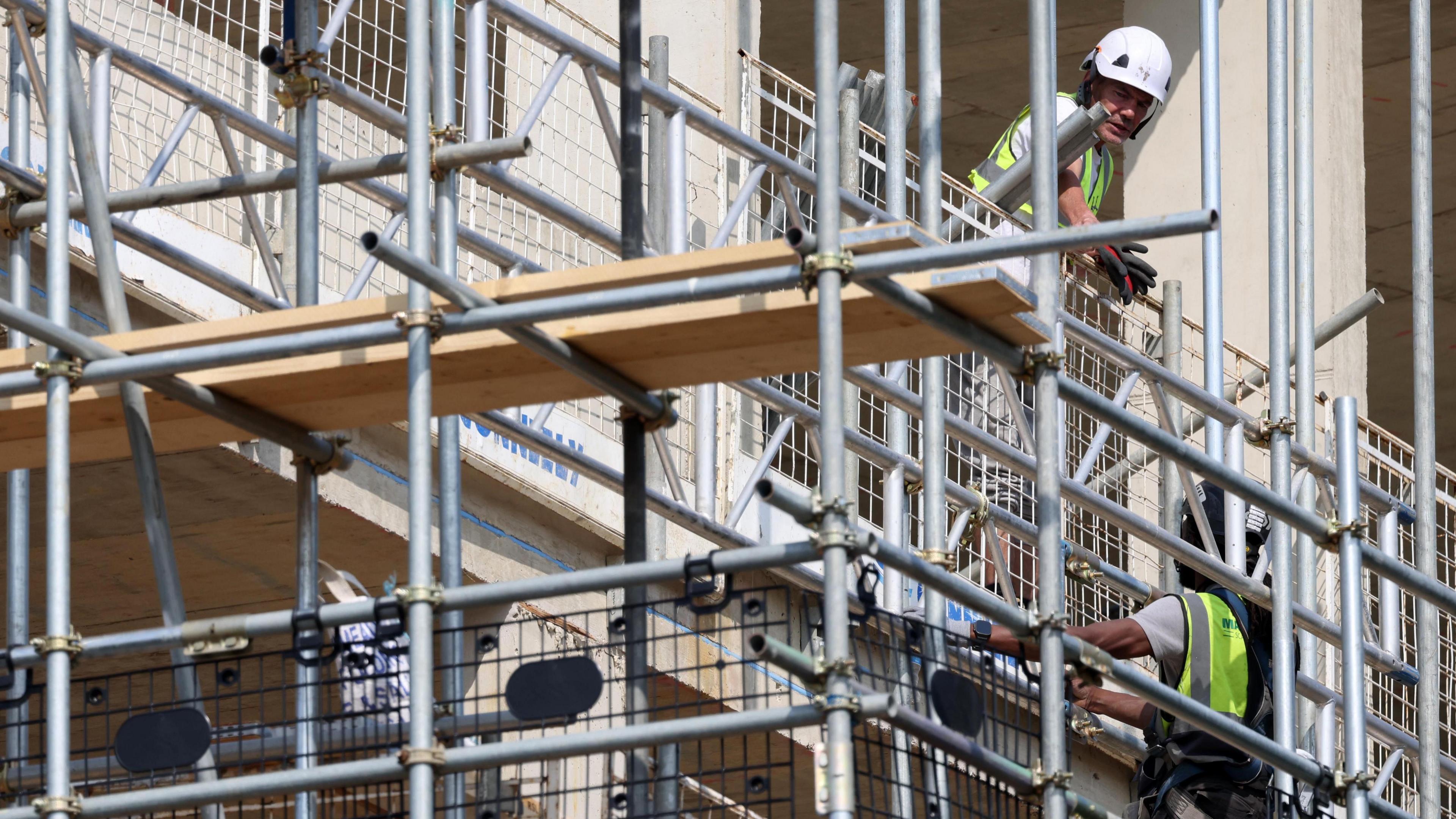
- Published7 days ago
